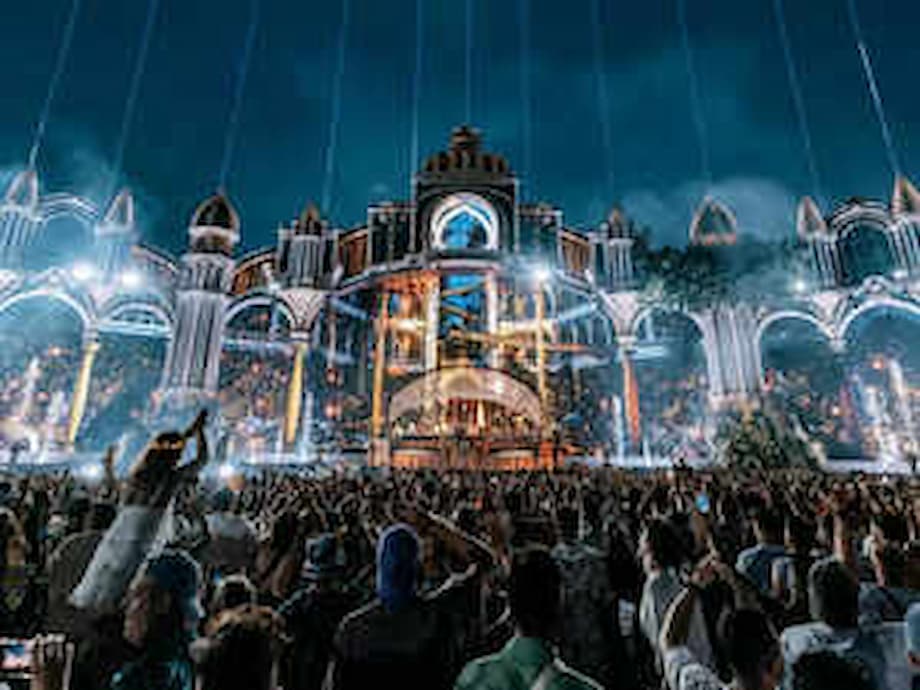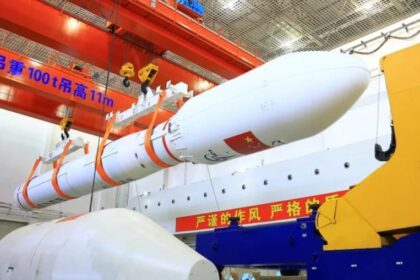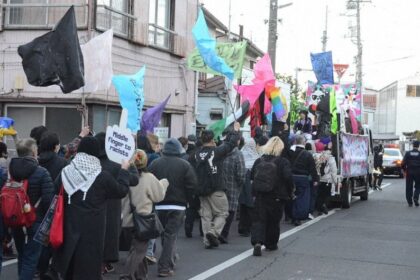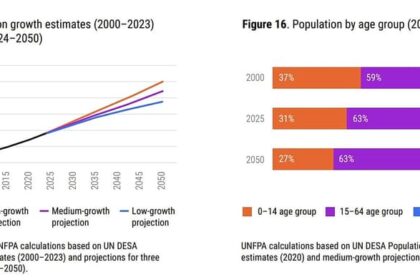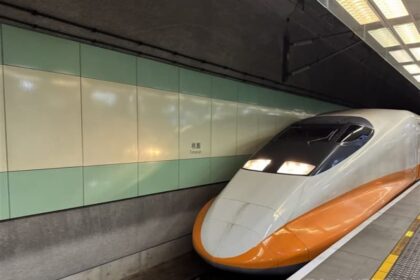Tomorrowland’s Historic Leap: Thailand to Host Asia’s First Edition in 2026
In a landmark move for Asia’s music and tourism industries, Thailand has secured a five-year agreement to host the world-renowned Tomorrowland festival, marking the first time the iconic electronic dance music (EDM) event will be held on the continent. The inaugural edition is scheduled for December 2026 at Wisdom Valley in Chonburi, just outside Pattaya, with the Thai government allocating a substantial budget of 2 billion baht (about $62 million) to support the festival’s launch and operations through 2030.
- Tomorrowland’s Historic Leap: Thailand to Host Asia’s First Edition in 2026
- Why Tomorrowland Chose Thailand: Location, Vision, and Opportunity
- Tomorrowland: A Global EDM Phenomenon
- Economic Impact: Billions in Revenue and a Tourism Boost
- What to Expect: Festival Experience, Cultural Integration, and Lineup
- Thailand’s Soft Power Strategy: Music as a Cultural and Economic Driver
- Challenges and Preparations: Infrastructure, Logistics, and Community Engagement
- Broader Implications: Thailand’s Rise as a Festival Destination
- In Summary
Tomorrowland’s arrival in Thailand is more than just a music event—it’s a strategic play to boost tourism, showcase Thai culture, and position the country as a global destination for major festivals. The festival is expected to attract over a million visitors across five years, generate billions in economic activity, and create new opportunities for local businesses and creative talent.
Why Tomorrowland Chose Thailand: Location, Vision, and Opportunity
The decision to bring Tomorrowland to Thailand follows years of negotiations and planning. Chonburi, in Thailand’s Eastern Economic Corridor, was selected for its large, versatile event spaces, robust infrastructure, and proximity to major airports such as U-Tapao, Suvarnabhumi, and Don Mueang. The region boasts over 3,500 hotels with 66,000 rooms, reliable utilities, and international-standard healthcare facilities, making it well-equipped to handle the influx of festival-goers from around the world.
According to Thapanee Kiatphaibool, Governor of the Tourism Authority of Thailand (TAT), the biggest challenge was finding a location that met Tomorrowland’s world-class standards. Wisdom Valley, covering 99–138 acres in Bang Lamung District, emerged as the ideal site, offering both accessibility and the capacity for Tomorrowland’s elaborate stage designs and immersive experiences.
Prime Minister Paetongtarn Shinawatra emphasized the government’s commitment to integrating Thai culture into every aspect of the festival. In a statement, she said:
“This is about maximizing benefits for Thai citizens. The soft power policy is advancing steadily and sustainably. Tomorrowland in Thailand represents new opportunities, a new economy, new income streams, and new pathways for Thais in the creative sector.”
The festival’s organizers, VR One World (Thailand)—a joint venture between Thai firm One Asia Ventures Co., Ltd. and Belgium-based Tomorrowland International—will work closely with local communities and authorities to ensure a seamless and culturally rich experience.
Tomorrowland: A Global EDM Phenomenon
Founded in 2005 in Boom, Belgium, Tomorrowland has grown into the world’s most celebrated EDM festival, attracting hundreds of thousands of fans from over 200 countries each year. Known for its fantastical stage designs, immersive storytelling, and top-tier international DJs, Tomorrowland has become a symbol of electronic music’s global appeal and commercial success.
Previous international editions have been held in the United States (TomorrowWorld in Atlanta), Brazil, and France (Tomorrowland Winter), but the Thailand event marks the festival’s first full-scale foray into Asia. This expansion follows a series of smaller, experimental events, including an indoor Tomorrowland experience in Shanghai, China, in November 2025.
Tomorrowland’s flagship event in Belgium generates substantial economic impact, with recent editions contributing nearly €300 million to the local economy and employing thousands of people. The festival’s social media following exceeds 5.5 million, and its brand is synonymous with cutting-edge production and unforgettable live experiences.
Economic Impact: Billions in Revenue and a Tourism Boost
The Thai government’s investment in Tomorrowland is part of a broader strategy to revitalize the country’s tourism sector, which accounts for about 12–15% of Thailand’s GDP. The festival is projected to generate more than 12 billion baht (over $350 million) in economic activity over five years, with some estimates placing the figure as high as 21 billion baht (about $483 million) when factoring in indirect benefits.
Key sectors expected to benefit include:
- Hotels and accommodation providers in Chonburi and nearby cities
- Transportation services, including airlines, taxis, and buses
- Food and beverage outlets, from street food vendors to high-end restaurants
- Retail businesses and local markets
- Event production, security, and logistics companies
The influx of international visitors is anticipated to support the local hospitality industry, create thousands of jobs (both temporary and permanent), and provide valuable knowledge transfer as Thai workers collaborate with international event organizers. The festival’s recurring presence will also help diversify Thailand’s tourism offerings, attracting a younger, global audience of music fans and positioning the country as a festival hub in Asia.
What to Expect: Festival Experience, Cultural Integration, and Lineup
Tomorrowland Thailand promises to deliver the same magical experience that has made its Belgian counterpart legendary, while infusing the event with uniquely Thai elements. The festival will run for three days each December from 2026 to 2030, with elaborate stage setups, immersive performances, and a diverse lineup of world-class electronic music artists.
While the official artist lineup for 2026 has not yet been announced, fans can expect appearances by global EDM superstars who regularly headline Tomorrowland Belgium, such as Martin Garrix, Swedish House Mafia, Eric Prydz, Afrojack, Steve Aoki, Amelie Lens, Armin van Buuren, Axwell, Nervo, and Alok. The event will also feature Thai artists and performers, traditional cultural showcases, and culinary experiences designed to highlight the country’s rich heritage.
Ticket prices are expected to range from 7,500 THB (about $215) for a one-day pass to 18,000 THB (about $530) for a three-day pass, with VIP packages starting at 25,000 THB ($730). Official ticket sales and detailed schedules will be announced closer to the event date.
Tomorrowland Thailand will also introduce an Event Academy, aimed at enhancing the skills of Thai entrepreneurs and professionals in organizing large-scale music and entertainment events. This initiative is part of the festival’s commitment to knowledge transfer and capacity building within the local creative sector.
Thailand’s Soft Power Strategy: Music as a Cultural and Economic Driver
Hosting Tomorrowland is a key component of Thailand’s broader soft power strategy, which seeks to leverage the country’s cultural assets—music, food, art, and hospitality—to drive economic growth and enhance its global reputation. The government’s vision is to make Tomorrowland Thailand a showcase for Thai creativity, talent, and innovation, rather than a simple franchise import.
Prime Minister Paetongtarn Shinawatra and the Tourism Authority of Thailand have pledged to ensure that Thai culture is woven into every aspect of the festival, from stage design and performances to food and community engagement. This approach aims to create a festival experience that is both globally recognized and authentically Thai, setting a new standard for international event collaborations.
The festival’s timing in December aligns with Thailand’s peak tourist season, offering favorable weather conditions and maximizing the potential for international arrivals. The integration of local artists and businesses is expected to create a ripple effect, inspiring future collaborations and elevating Thailand’s status as a creative and cultural epicenter in Asia.
Challenges and Preparations: Infrastructure, Logistics, and Community Engagement
Bringing a festival of Tomorrowland’s scale to Thailand presents significant logistical and operational challenges. The organizers, in partnership with the Tourism Authority of Thailand and local authorities, are investing heavily in infrastructure upgrades, transportation planning, and security measures to ensure a safe and seamless experience for attendees.
Wisdom Valley’s strategic location near Pattaya and its proximity to major airports make it an ideal venue, but preparations are already underway to enhance road access, expand accommodation options, and upgrade utilities. The festival’s organizers are also working closely with local communities to address concerns about noise, traffic, and environmental impact, with a focus on sustainability and responsible event management.
Government agencies, including the Ministry of Public Health and the Eastern Economic Corridor, are involved in planning to ensure that health and safety standards meet international benchmarks. The collaboration between public and private sectors is seen as a model for future large-scale events in Thailand.
Broader Implications: Thailand’s Rise as a Festival Destination
Tomorrowland’s debut in Thailand is part of a larger trend of international festivals choosing the country as their Asian base. In recent years, Thailand has hosted editions of Summer Sonic, Rolling Loud, and EDC (Electric Daisy Carnival), with more global brands eyeing the market. The government’s proactive approach to attracting major events is designed to diversify the tourism sector, reduce reliance on traditional markets, and stimulate economic recovery in the wake of the global pandemic.
Tourism Minister Sorawong Thienthong highlighted the strategic importance of Tomorrowland, noting that the festival is expected to attract high-spending travelers and boost Thailand’s tourism-driven economy. The move comes as the country seeks to offset a decline in Chinese visitors and position itself as a premier destination for music, culture, and entertainment.
The success of Tomorrowland Thailand could pave the way for other major festivals, sports competitions, and international conventions, further solidifying Thailand’s reputation as a world-class event destination. The festival’s legacy is expected to extend beyond music, influencing urban development, creative industries, and the country’s global image for years to come.
In Summary
- Thailand will host Tomorrowland, Asia’s first edition of the iconic EDM festival, from 2026 to 2030 at Wisdom Valley in Chonburi.
- The government has approved a 2 billion baht ($62 million) budget, with most funding coming from private investors.
- The festival is expected to attract over a million visitors across five years and generate more than 12 billion baht in economic activity.
- Tomorrowland Thailand will feature world-class artists, elaborate stage designs, and extensive integration of Thai culture.
- The event is part of Thailand’s strategy to boost tourism, showcase its creative industries, and position itself as a global festival hub.
- Preparations include major infrastructure upgrades, community engagement, and the launch of an Event Academy for local talent.
- Tomorrowland’s arrival marks a new era for Thailand’s music, tourism, and cultural sectors, with far-reaching economic and social benefits.


